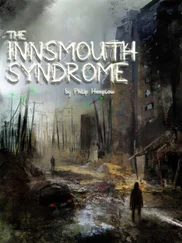I do not dare signify to her that anything is different, let alone approach her from the rear, as I used to. Instead, in celebration and gratitude I step outside in the violet dusk and take three nips like a country man.
We sleep aft in a kind of observation bedroom — Meg has discovered how to slide back the roof, making a bubble under the stars — the kids amidships in complex fold-out astronaut pods. The bed is king-size, bigger than Sears Best. I am having bouts of nervousness and so take a nip for each bout. To keep the key low — no grand epiphanies, thank you — I turn on the tube. Leroy’s stereo-V is a pull-down screen big as a movie. There’s Hawkeye and Trapper John back in Korea. I never did like those guys. They fancied themselves super-decent and supertolerant, but actually had no use for anyone who was not exactly like them. What they were was super-pleased with themselves. In truth, they were the real bigots, and phony at that. I always preferred Frank Burns, the stuffy, unpopular doc, a sincere bigot.
But if Ellen likes them—
But Ellen turns them off.
There we lie in the Florida barrens in a bubble of a spaceship as close to the stars as Voyager V, I not quite drunk but laid out straight as an arrow, feet sticking up, hands at my side, eyes on Orion.
She too.
Presently her hand comes down lightly on my thigh, stays there.
“Okay then,” says Ellen.
“Yes, indeed.”
“I — good.”
“Sure.”
“Soon — better.”
“Right.”
Ellen is still too stoned on sodium ions to talk right.
I am too drunk for too long to make love.
But it’s all right. Soon she’ll talk better and I won’t have to drink.
Disney World is indeed splendid — though I could not stand more than one hour of it.
After one day of the Magic Kingdom, Tomorrowland, Adventureland, Mickey and Goofy, Spaceship Earth, the World of Motion, the Living Seas, I take to the woods.
The children love it. Ellen seems to like it in an odd, dreamy way. Tommy and Margaret are the only kids around — everybody else is in school. They’re laid out, paralyzed by delight, when they shake hands with Mickey and Goofy (though they don’t really know who Mickey Mouse is).
But it is splendid. The kids run free and safe, catch the tram, launch, monorail, quasi-paddle-wheeler in a quasi-river, go where they please.
Ellen makes friends with other ladies in Jack Rabbit Run, plays some bridge, not too well, no better than they.
We’re there a week.
I am quite happy sitting in our private little copse in Fort Wilderness reading Stedmann’s History of World War I. A little vista affords a view of the great sphere of spaceship earth and the top of the minaretlike tower of Cinderella’s Castle.
It is easy to make friends. Sometimes I catch the Conestoga tram up to Trail Blaze Corral or down to the Ole Fishing Hole. Though we are hedged off from our neighbors by a brake of cypress, pine and palmetto, they are only a few feet away. A haze of perfumed briquet smoke, friendly talk, laughter enlists us in a community of back yards.
We meet on the tram or strolling about Jack Rabbit Run or Sunny Sage Way or Quail Trail.
Most of my neighbors are from Canada or Ohio. They are very pleasant fellows, mostly retirees who have done well and are cruising America in their Bluebirds and Winnebagos and Fleetwoods. The Ohioans are recognizable by their accents, not their license plates, which are mostly Florida, for they have settled down in places like Lakeland or Fort Myers or Deerfield Beach and have hopped over for a few days.
Native Floridians look down their noses at the Ohioans. The saying is: An Ohioan arrives with a shirt and a five-dollar bill and never changes either. But it isn’t true. My Ohio neighbors in Jack Rabbit Run couldn’t be nicer. It is quickly evident that I know nothing about motor homes and they spend a great deal of time demonstrating electrical and sewerage hookups and even the features of my own Bluebird, which they know better than I (they marvel at the modifications Leroy has made, especially the map locator).
The Canadians are as affable but standoffish — though not as shy as the English.
But both, Canadians and Ohioans, are amiable, gregarious, helpful — and at something of a loss. Here they are, to enjoy the rewards of a lifetime of work, to escape children and grandchildren, and they have. They stand about nodding and smiling, but looking somewhat zapped.
Ellen gets along splendidly with them too. She talks to the women by the hour, especially the Canadians, about the queen of England and Princess Di. Like many American women, she loves British royalty even more than the Brits.
Their expressions are fond and stunned.
The Ohioans looked zapped but keep busy.
The Canadians looked zapped but also wistful.
Every time I talk to a Canadian, either he will get around to asking me what I think of Canada or I will know that he wants to.
I realize that I do not have many thoughts about Canada. Reading Stedmann, who mentions the heroic role the Canadians played in World War I, I realize a curious fact about Canadians: When you hear the word Canada or Canadians, nothing much comes to mind — unlike hearing the words Frenchman or Englishman or Chinese or Spaniard —or Yankee. I realize this is an advantage. The Canadian is still free, has not yet been ossified by his word. (Why am I beginning to think like Father Smith?)
I read Stedmann about the Battles of the Somme and Verdun for a while, then step out into my tiny plantation fragrant with hot palmetto palms — it is like summer here — walk over to Quail Trail, and have a Coke with my amiable, stunned neighbors.
Like my cellmates at Fort Pelham and unlike folks at home, they want to talk about current events, politics, Communism, Democrats, Negroes (their word), terrorists, and such.
I listen attentively and with interest.
After reading Stedmann in the Bluebird and stepping out into the fragrant Florida sunshine and discussing current events with my knowledgeable, up-to-date neighbors, who even with their knowledgeability — unlike me they’re up to date — still look fond and stunned even as they speak, I experience the sensation that the world really ended in 1916 and that we’ve been living in a dream ever since. These good fellows have spent their entire lives working, raising families, fighting Nazis, worrying about Communism, yet they’ve really been zapped by something else. We haven’t been zapped by the Nazis and the Communists. On the contrary. It is a pleasure to fight one, worry about the other, and talk about both.
We stand about in the Florida sunshine of Jack Rabbit Run, under the minaret of Cinderella’s Castle, they fresh from the wonders of Tomorrowland — Tomorrowland! — We don’t even know what Todayland is! — fond, talkative, informative, and stunned, knocked in the head, like dreamwalkers in a moonscape.
Ellen wants to stay on the road, head for Wyoming and Jenny Lake in Jackson Hole. But I have to get back to testify in the trial of John Van Dorn and company. We’ll go later.
3. VAN DORN AND HIS STAFF were not convicted of child abuse, after all. The presence of heavy sodium in their bloodstreams (they’d been taking a cocktail now and then for one reason and another) compromised the case against them. In a plea-bargain agreement with the district attorney they were confined to the State Forensic Hospital in Jackson until their bizarre symptoms and behavior abated, whereupon they were paroled into the custody of Sheriff Vernon “Cooter” Sharp and sentenced to five years of community service. Sheriff Sharp, after consulting with me and Max, assigned them to St. Margaret’s Hospice.
Читать дальше












